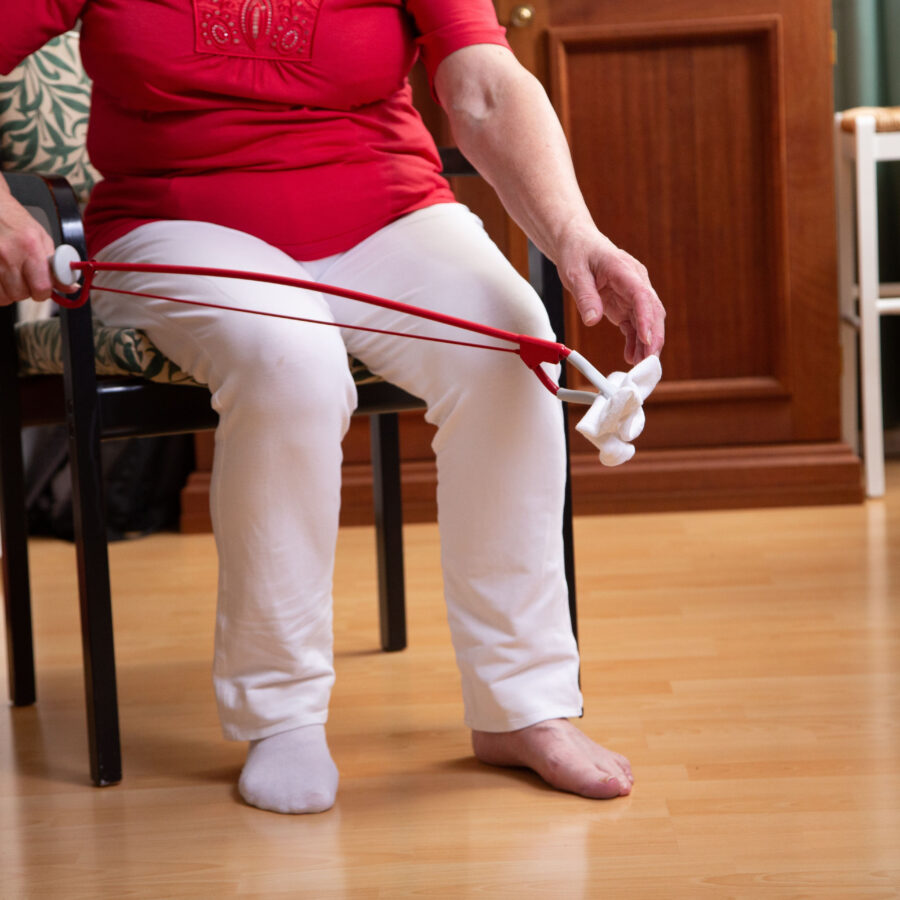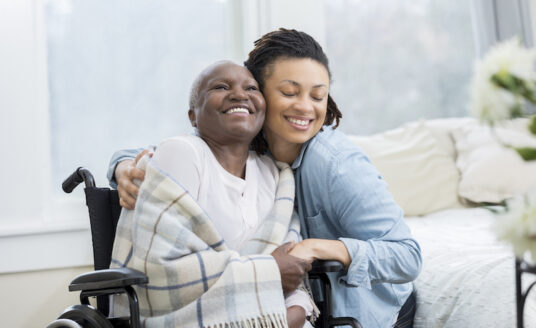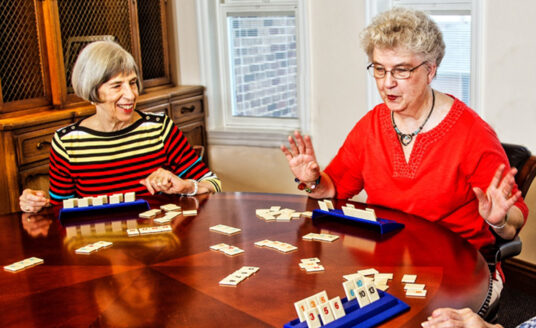Our strength, dexterity, and balance decrease while we age, and therefore it becomes more important than ever to find creative solutions to make life easier. Fortunately, a wide variety of adaptive tools exist that are designed precisely to help older adults live the lives they desire. Here are some of the best, most useful assistive devices you can find to keep your senior loved one safe, comfortable and happy:
In the Kitchen:
- Senior-friendly utensils: Look for cooking tools and cutlery with thicker, easier-to-grip handles that work better with senior hands.
- Jar opener: One of the toughest tasks in the kitchen for people with arthritic hands and fingers is getting a good grip to torque open a jar. There are a wide variety of openers available, ranging from ones that work manually with a handle that gives the operator more leverage to ones that are battery-powered to do all the heavy work for you.
In the bedroom:
- Button hook and zipper aid: If your Mom or Dad has trouble getting a grip on little buttons and zipper pulls, this handy gadget will work as a handle to make your fasteners work.
- Sock aid: Don’t have the flexibility to reach your feet? No problem. These assistive devices will hold on to your hosiery for you. All you have to do is push your foot down through the funnel to slide your socks into place.
- Bed rails: Getting into and out of bed is a time of potential danger for many seniors. Installing easy-to-use rails that fasten between the mattress and box spring will help. The rails will keep them from falling from bed, as well as give them something to hang onto when they’re getting settled for the night.
In the Bathroom:
- Shower bench or chair: A high number of senior falls take place in the bathtub or shower. Bathing benches and chairs are comfortable, easy to use, and balance issues won’t be nearly as much of a concern .
- Handheld shower head: In the same spirit, eliminate the hazardous part of a shower by removing the need for Mom or Dad to contort themselves to control the direction of the water. Instead, put control of the shower spray right in their hand.
- Shower “grab bar”: Experts say if you do one thing to make your senior safer, it should be to put a grab bar in their tub or shower. It’s something they can hang onto when they’re getting into and out of the tub, which can make all the difference between enduring a painful and dangerous fall – or not.
Electronics:
- Digital assistants: Sometimes seniors are reluctant to adopt new technology because it’s difficult for them to learn how to use a complicated new device. But there is no learning curve when it comes to operating a digital assistant like Amazon’s Alexa or Google’s Nest. They’re controlled by simple voice commands. All your senior loved one has to do is say what they want, and it will manipulate the lights, play music, control the television, adjust the thermostat or perform many other household tasks that otherwise would require getting up and moving about the house.
- Medication reminders: One of the most common problems seniors struggle with is managing their medication. That can be solved as simply as putting an app on their smartphone programmed to tell them when to take their medication and how much they should take.
- Emergency alerts: There are a variety of products on the market, including fitness trackers, which offer monitors to tell you if the wearer has taken a hard fall or if they’re lying on the floor. These devices could save a life by automatically summoning help in the event of a catastrophe. (Think – “I’ve fallen and I can’t get up!”)
Utility Devices:
- Reacher: Something that’s decidedly lower tech, but still very helpful, is a reaching device with a claw grip on the end. Using this should keep your senior from falling, as they won’t have to bend over to pick something up from the floor.
- Magnifier: Being able to read the fine print and instructions becomes much more challenging as we age. Having a magnifying device handy, preferably one with a built-in light, makes it much easier to read.
These easy-to-install and (for the most part) affordable assistive devices can make a major difference in helping your senior loved one stay safe and independent in their own residence. They’re things that are easy to use, don’t require much training, and are great “insurance policies” against incidents taking place in their home.
For more tips on keeping seniors safe in their homes, visit our blog!
Want to find out more?
If you’d like to stay up to date with Bethesda Health Group, sign up here to receive our blog and newsletters!
"*" indicates required fields
Related Articles
Want to find out more?
If you’d like to stay up to date with Bethesda Health Group, sign up here to receive our blog and newsletters!
"*" indicates required fields



